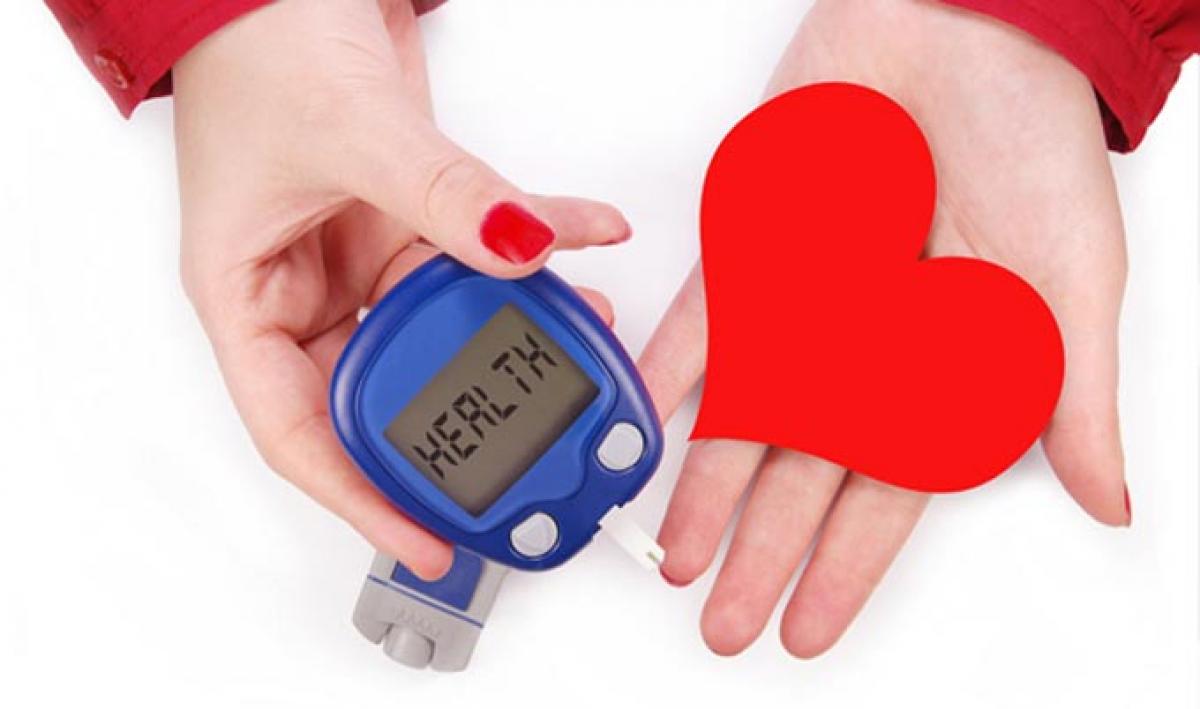Live
- Sri Aurobindo’s vision: Bridging the gap for holistic human evolution
- Sri Radha Govinda Ratha Yatra conducted
- A feast of music, dance and drama
- Mohan Babu denies absconding amid legal controversy
- Swift City to boost industrial growth in Bengaluru
- Allu Arjun walks out free after spending night in jail
- Congress harbours no grudge against any actor: TPCC chief
- Allu Arjun meets Upendra after release from prison, wishes for his ‘UI’ film
- Government Launches Uniform Diet Plan to Boost Student Health and Education
- Robust Security Arrangements for TSPSC Group-2 Exams in Jogulamba Gadwal
Just In

If we are what we eat, then seven out 10 people with diabetes in urban India seem to be paying little attention to what and how they eat, according to recent findings from the Abbott Food, Spikes and Diabetes survey.
 If we are what we eat, then seven out 10 people with diabetes in urban India seem to be paying little attention to what and how they eat, according to recent findings from the Abbott Food, Spikes and Diabetes survey. Ahead of World Diabetes Day on November 14, Abbott commissioned Ipsos India, a market research agency to reach out to over 4,100 people with diabetes (Type 2, diagnosed for over eighteen months) between the ages of 36 – 65, across socioeconomic classes.
If we are what we eat, then seven out 10 people with diabetes in urban India seem to be paying little attention to what and how they eat, according to recent findings from the Abbott Food, Spikes and Diabetes survey. Ahead of World Diabetes Day on November 14, Abbott commissioned Ipsos India, a market research agency to reach out to over 4,100 people with diabetes (Type 2, diagnosed for over eighteen months) between the ages of 36 – 65, across socioeconomic classes.
Hyderabad has the highest calories consumption among all cities and also the least number of meals, indicating that each meal is very heavy in calories.
The objective was to gain insights on what they eat, the meal plate’s role on blood sugar variability and impact on overall diabetes management. Through in-depth interviews, respondents shared details of their diet, monitoring and exercise. The frequency of meals and the quantity was measured through customised bowls, glasses, which were then converted to grams and calories.
An official release issued on November 5 said eight Indian cities were covered in the survey, which found that 62 per cent of people with diabetes are overweight or obese with a Body Mass Index (BMI) reading in excess of 22.9 (the normal cut-off for Indians). 46 per cent of people with diabetes are classified as obese. Men had an average BMI value of 24.1, which is classified as overweight and women had an average BMI of 25.3, indicating obesity.
.jpg) 65 per cent have uncontrolled blood sugar levels, with their last blood sugar readings outside the target range for fasting or postprandial (post meal) 62 per cent suffer from other medical conditions. Hypertension (40 per cent) comes out as the most common co-morbidity. At least 70 per cent of respondents having diabetes for more than five years reported one or more co-morbidity.
65 per cent have uncontrolled blood sugar levels, with their last blood sugar readings outside the target range for fasting or postprandial (post meal) 62 per cent suffer from other medical conditions. Hypertension (40 per cent) comes out as the most common co-morbidity. At least 70 per cent of respondents having diabetes for more than five years reported one or more co-morbidity.
Eye disorders (retinopathy) and nerve disorders (neuropathy) are relatively high in this group. “Unlike in the West, where fasting blood glucose is important, in India post-meal blood glucose is more important due to higher glycemic load in the Indian diet,” says Professor Shashank R Joshi, president, Indian Academy of Diabetes and Senior Endocrinologist, Lilavati Hospital in Mumbai.
“Roti and rice are two main sources of carbohydrates in the Indian meal plate. Upma, observed to be a popular breakfast item particularly in South India, is seen to add the maximum amount of calories, compared to other regular breakfast items. The biggest challenge for a patient with diabetes is the huge variation in the time interval between meals.
Typically, Indians have a 3-4hour gap between wake-up time and breakfast, which is detrimental for these patients. Therefore, they should have a shorter time gap with breakfast comprising whole grains or balanced meal replacements with diabetes-specific nutrition powders,” says Joshi.
“Diabetes is one of the major conditions affecting people’s health and lifestyle in India. Through its continuum of care approach, Abbott is seeking to advance understanding and drive greater awareness around effective diabetes management. Greater insights on people’s behaviour are needed to effectively manage the condition,” says Bhasker Iyer, vice-president, Abbott.
• Foods that people with diabetes started when diagnosed: Beans, spinach, carrot
• Foods that people with diabetes gave up after diagnosis: Sweets, chocolate, ice-cream
• Most difficult food items to give up for a diabetic person: Rice, potatoes, banana
• Home remedies for managing diabetes: Karela (Bittergourd), Methi (Fenugreek) seeds and Okra (Ladies’ fingers)
Survey analysis
• Respondents - 502
• Overweight or Obese – 66%
• Uncontrolled blood sugar -55%
• Age of diabetes diagnosis for respondents: < 35 years (19%), 36-45 years (34%), 46-55 years (27%), 55-65 years (20%)
• Number of meals per day (average) : 3.0
• Time gap between waking up and breakfast (average) : 181 minutes
• Average calories consumed per day: 3,445 Kcal.
• Top 3 breakfast options : Idli Vada, Upma & Roti Sabzi
• Top 3 lunch options: Rice, Vegetable/Vegetable curry, Dal & pulses
• % of carbohydrates consumed (average) : 69%
• Respondents observing fasts : 6%
• Respondents stating that they exercise : 23%

© 2024 Hyderabad Media House Limited/The Hans India. All rights reserved. Powered by hocalwire.com







